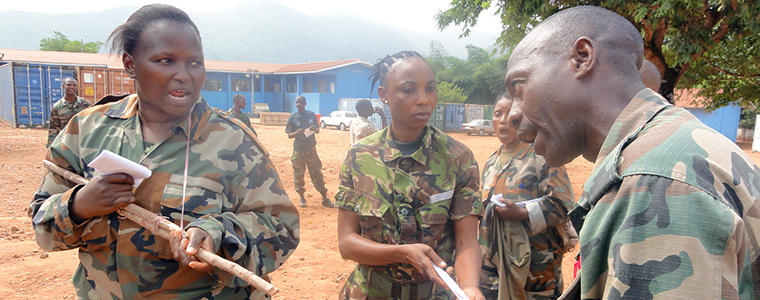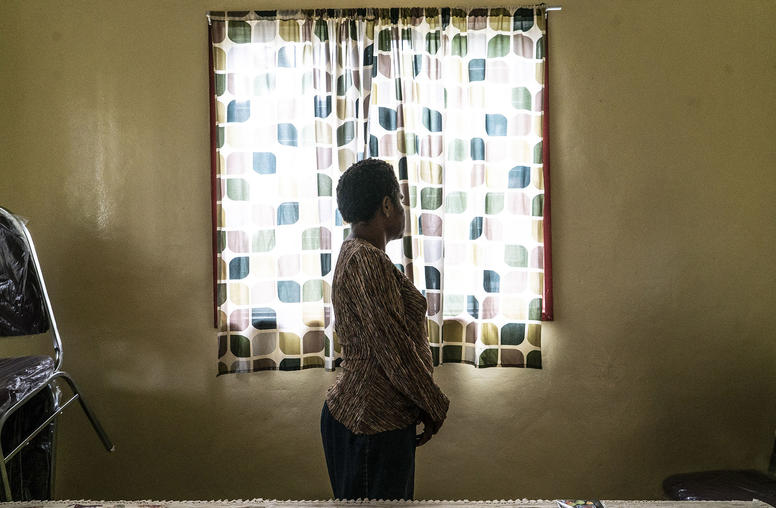Sierra Leone Sends Women Peacekeepers to Somalia
Sierra Leone is demonstrating that it understands the important role women can play as peacekeepers. Half of the 50 Sierra Leone military personnel participating in a recent workshop by USIP on negotiations and communication in peacekeeping were women, an important development considering the unit will be deployed in Somalia.

In contrast, only two women participated in a similar pre-deployment training two years ago for Sierra Leone peacekeepers headed to join the United Nations-backed African Union Mission in Somalia (AMISOM). An estimated 65 women are expected to deploy in an 850-person battalion this spring. Six nations provide the military component that makes up the bulk of the 22,000-strong African Union force in Somalia, according to the AMISOM web site. Sierra Leone is one of those countries.
The presence of Muslims, Arabic speakers, and a significant number of women in the battalion puts the unit in a good position for constructive engagement with the local population in Somalia, where Arabic is an official language alongside Somali. Sierra Leone is majority Muslim, with English as its official language, but the diverse makeup of the peacekeepers improves the prospects of success for the mission. Female peacekeepers are important not only for communicating with women in the civilian population in conservative Muslim communities but also as role models.
The government of Sierra Leone deployed its first battalion to AMISOM last year and developed a reputation for excellent work. The African Union force in September successfully regained control of the southern Somali port city of Kismayo from the Islamist insurgent group al-Shabab, according to BBC News. The second battalion from Sierra Leone is scheduled to assume sole responsibility in Kismayo.
USIP’s Academy for International Conflict Management and Peacebuilding conducted the pre-deployment workshop in Sierra Leone in partnership with the U.S. State Department’s Africa Contingency Operations Training and Assistance program (ACOTA). Sessions focused on negotiation and communication skills, conflict analysis, mediation and protection of civilians.
The battalion had been formed especially for this mission with participants from different units of Sierra Leone’s army, so the USIP training also helped contribute to the cohesion and consolidation of the unit, factors critical to the effectiveness of every military unit. USIP has delivered 78 trainings of African peacekeepers in 11 countries over the last six years.
Debra Liang Fenton is a senior program officer in USIP’s Academy. She conducted the Sierra Leone workshop with Ann Phillips, a contractor for the Institute.



